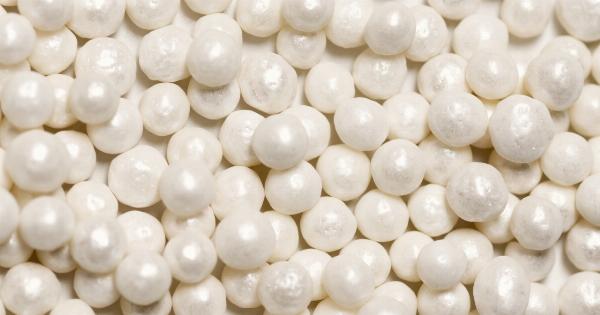Milk has been touted as a gold-standard source of calcium that helps in keeping the bones healthy and strong. However, not all children consume milk for various reasons such as food allergies, picky eating habits, or lactose intolerance, among others.
So, what happens to a child’s bones if they don’t drink milk, and are there alternatives to milk that can help keep the bones healthy? In this article, we will explore the impact of milk intake on a child’s bone health and also suggest some non-milk alternatives to keep bones healthy.
: Importance of Calcium for Bone Health
Calcium is a vital mineral for a child’s growth and development. It helps in building strong bones, teeth, and muscles. As children grow, their bones go through a process called bone remodeling, wherein old bone tissue is replaced by new tissue.
Calcium plays a critical role in this process, ensuring that the new bone tissue is healthy and strong. Thus, consuming enough calcium-rich foods is essential for the maintenance of bone health in children.
: Milk and Bone Health
Milk is a rich source of calcium, with an 8-ounce glass of milk providing around 300mg of calcium. Children who consume an adequate amount of milk are at a lower risk of developing bone-related diseases such as osteoporosis and fractures later in life.
A study published in the Journal of Bone and Mineral Research found that children who consumed more milk had greater bone mineral density than those who consumed less milk. Therefore, milk is an essential food for maintaining good bone health in children.
: Milk Alternatives for Bone Health
While milk is an excellent source of calcium, it is not the only one. Here are some non-milk sources of calcium that can help children maintain good bone health:.
- Yogurt: Yogurt is an excellent source of calcium, with one cup of yogurt (245g) providing around 300mg of calcium. Additionally, yogurt also contains probiotics that help in maintaining a healthy gut.
- Cheese: Cheese is a calcium-rich food, with 1.5 ounces (42g) of cheddar cheese providing around 300mg of calcium. Cheese also contains Vitamin D and other essential nutrients that help in maintaining bone strength.
- Fruits and Vegetables: Dark leafy greens such as kale, spinach, and collard greens are excellent sources of calcium. One cup of cooked spinach (180g) contains around 240mg of calcium. Oranges, figs, and broccoli are also good sources of calcium.
- Tofu: Tofu is a soy-based product that is rich in calcium. Half a cup (126g) of tofu can provide up to 434 mg of calcium. Tofu is also an excellent source of protein and iron.
- Almonds: Almonds are a rich source of calcium, with one ounce of almonds (28g) providing around 75mg of calcium. Almonds also contain healthy fats and proteins that can help in maintaining overall health.
: Impact of Not Drinking Milk
Children who do not consume an adequate amount of calcium-rich foods such as milk are at risk of developing bone-related diseases such as osteoporosis and fractures later in life.
The child’s body requires a certain amount of calcium daily to ensure that their bones are healthy and strong. If the child does not get enough calcium, the body will take calcium from the bones, making them weak and brittle. This can lead to bone-related problems as the child grows older.
: Conclusion
While milk is an essential food for maintaining good bone health in children, it is not the only one. Parents can encourage their children to consume non-milk sources of calcium to ensure that their bones are healthy and strong.
Additionally, regular exercise, especially weight-bearing exercise such as running, can also help in maintaining good bone health. Overall, a balanced diet and an active lifestyle are key to keeping bones healthy and strong throughout childhood and beyond.































